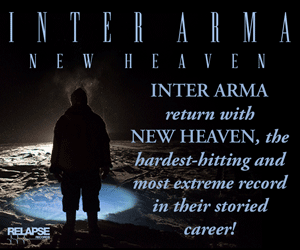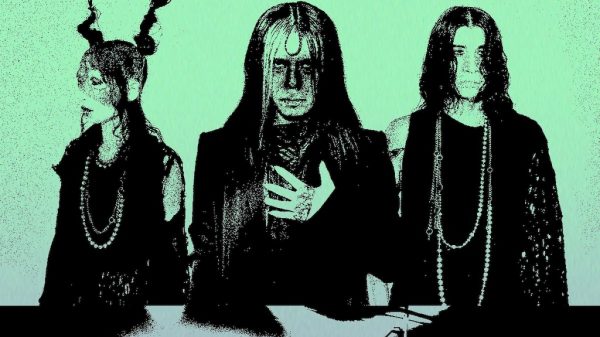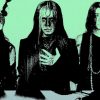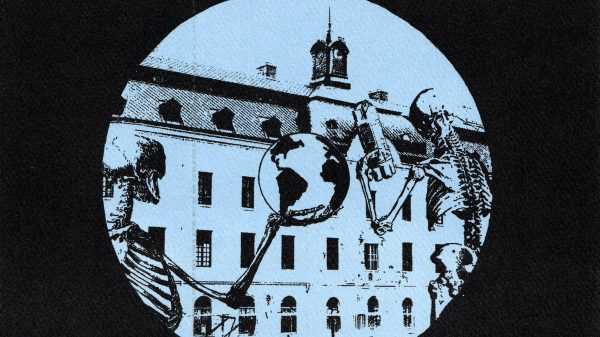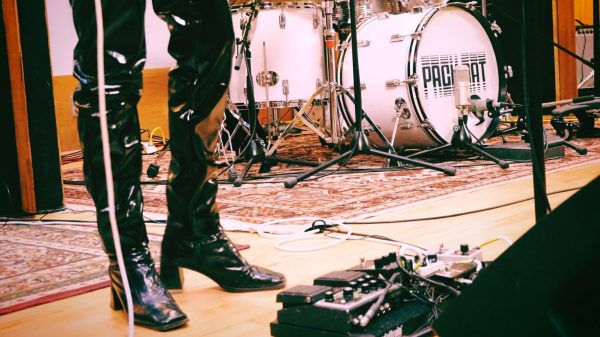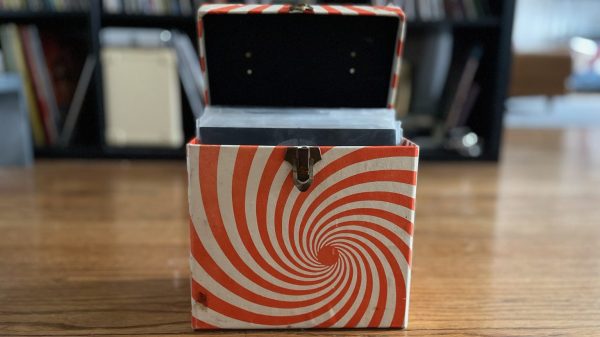(Note: This article originally appeared, in an earlier form, at Souciant.com, here. It is reprinted with permission from the author.)
Manchester’s Warsaw changed their name in 1977 to Joy Division to avoid conflict with the punk band Warsaw Pakt. Coincidentally, that change served to mark the break between Joy Division’s punk phase and their later, better-known dark postpunk era. There is something important to this: Many bands at that time started as punk bands yet ended up becoming postpunk, deathrock, and gothic rock acts.
Although Warsaw’s output has its fans and diehard evangelists to this day, it’s the Joy Division material that garnered that band’s popularity. Easy Cure – a British punk band – became The Cure. Crisis became Death in June. The punk band The Outsiders became the postpunk band The Sound. And it goes on. But other bands have had the opposite problem: They are known for their punk material, but their later postpunk output remains neglected, or is seen (by purist punks, at least) as a kind of embarrassing deviation from punk purity, to be brushed under the rug. Rare are bands like Wire or Siouxsie and the Banshees, or Killing Joke — bands whose punk and postpunk material is accorded equal acclaim.
Well, here are five bands whose postpunk material merits reexamination. Audiophiles will be familiar with some of the releases. The material warrants broader exposure regardless.
1.) MIDDLE CLASS: Homeland LP (1982)
Middle Class are one of three or four bands credited with starting hardcore punk, along with Bad Brains, and several others in the late 1970s. Yet they released a seminal postpunk LP in the 1980s, too.
So, yes, the postpunk band I am talking about here is the same Middle Class from Southern California that many insist pioneered the genre of hardcore punk. (And let’s not rehash the endless and ultimately unproductive debates over who invented that.) Middle Class’s 1978 Out of Vogue EP was impossibly fast, featuring rapid-fire auctioneer-style vocals courtesy of Jeff Atta. As the online Agony Shorthand zine remarks, “Middle Class were truly more of an ‘artpunk’ band, even from the first record, than many of the groups [they] automatically got lumped in with.” Guitarist Mike Atta agrees: “[W]hen the definition of punk narrowed, bands like Pop Group, Gang of Four, and Joy Division would have an obvious effect on us.”
And so we have the 1982 Homeland LP, sadly Middle Class’s only full-length. The album art hints at a more nuanced and somber approach. It looks like it could have come out on Factory Records. From the get-go, the slower tempos and more intricate bass lines – which sometimes recall Peter Hook, but which at other times delved into the punk-funk of The Pop Group – catch one’s attention. Had the LP come out on the 4AD label, on the other side of the Atlantic, the very same material would be instantly recognized as classic. But as it stands, Homeland was an odd duck of an album coming out of the Orange County hardcore milieu, so it was almost instantly ignored. The material feels more British than Californian in its sensibility, except for perhaps the track “Restless Young Men,” which has a Urinals/100 Flowers vibe. “Out of My Hands” is as good a postpunk song as one can find from an American band in the early 1980s.
Middle Class’s rare Blueprint for Joy discography CD has all the band’s hardcore material and later postpunk stuff on one disc.
2.) THE PROLETARIAT: Indifference LP (1985)
Like Middle Class, Boston’s Proletariat are primarily remembered for their earlier, angry punk material. Their lyrics and song titles were always great, showing a lefty agitprop bent: “Religion is the Opium of the Masses,” “Voodoo Economics,” “Marketplace,” and others. Early on, The Proletariat played raw, fast punk in the vein of their heroes in the Sex Pistols. In the book American Hardcore, Stephen Blush wrote, “The Proletariat played vicious hardcore fused with a jagged Gang of Four/Killing Joke edge. Frontman Richard Brown wrote poetically oblique lyrics with a distinct Marxist bent – part Burroughs, part Mao. Soma Holiday, their ’83 LP, was way ahead of its time.”
But it’s the 1985 Indifference LP I want to highlight here. To my mind it’s every bit as good as “Soma Holiday,” yet still sorely overlooked. A mature mix of smart songwriting and deft, accomplished instrumentation, the album hints at the early “positive punk” of UK bands like Sex Gang Children or Furyo. The influence of bands like The Dils, the Mekons, and fellow Bostonite postpunkers Mission of Burma also courses strongly through the LP’s veins. Indifference is ultimately a strange kind of kindred soul to Middle Class’s Homeland; there is even a song called “Homeland.” To my mind, Indifference is every bit as good as the strongest stuff released on 4AD or Rough Trade at the time. Like Middle Class’ Homeland LP, it seems an accident of geography (i.e. the band is from Boston, not London) that has resulted in the record languishing in obscurity.
3.) BLITZ: Second Empire Justice LP (1983)
When Crisis had their own personal Joy Division epiphany, they ultimately became Death in June. When the rowdy Oi! band The Blitz went through the same thing, they abruptly changed musical course and released Second Empire Justice, alienating their skinhead fanbase almost overnight. Like Joy Division, New Order, and Death in June, Blitz’s name had sketchy political connotations; Nietzschean song titles like “New Age” didn’t help. In fact, it was “New Age” and especially its promo video, which exaggerated things just a little bit by stating the band were from Manchester (really, they were from nearby New Mills) – that signaled the sea change in the band’s sound. Suddenly the Blitz were dressed in all black dress shirts, and it sounded like Bernard Sumner was guesting on guitar. Oi! seer Gary Bushell had claimed Blitz’s 1982 Voice of a Generation LP was like The Clash’s debut album “in terms of feel, suss and relevance.” Comparisons like this came to aquick halt after Second Empire Justice came out.
Interestingly, Second Empire Justice was disowned by the band after they decided to return to their Oi! roots, and for a long time many people thought the Blitz of Second Empire Justice must have been a different band than the Blitz of “Never Surrender“. There is a chilly, nostalgic, very European vibe to Second Empire Justice, and there’s no doubt it belongs on the shelf next to Joy Division’s Closer, Positive Noise’s Heart of Darkness LP, and early Danse Society, not by Last Resort or The Partisans. Interestingly, Blitz’s 1989 Killing Dream LP also betrays a Sisters of Mercy/gothic rock influence. Underappreciated is the creeping Stranglers influence present even early on in such tracks as “Fatigue.”
4) SIEKIERA: Nowa Aleksandria LP (1987)
Like the American band Middle Class, Poland’s Siekiera earned their stripes in the trenches of hardcore punk. And also like Middle Class, Siekiera’s only full-length album is a surprisingly somber postpunk affair that sounds light years removed from the band’s lightning fast punk origins. Whereas Middle Class had a very palpable Gang of Four/Rough Trade influence in its music, Siekiera’s direction was full-on Killing Joke worship.
Footage from the legendary, dusty Jarocin ’84 punk fest in Poland (parts of which can be seen on Youtube, presents a Road Warrior-looking band that sounds something like a cross between The Exploited and Abrasive Wheels. In other words, UK82 all the way. But the Nowa Aleksandria LP throws listeners a complete curveball, and, as with Blitz’s change of tune in 1983, punk fans were initially none too happy about the gothy directions the band decided to take. A different demographic ultimately discovered the dark, arty, almost coldwave-esque Polish LP and so it did achieve cult status over the years. Now that more recent Polish punk acts like Post-Regiment, Tragedia, and PESD have championed Siekiera’s lone LP, it’s been taken back in among the punk crowd – or at least accorded a kind of final and proper respect.
5) FLIEHENDE STURME: An Den Unfern LP (1988)
The story by now probably seems familiar: A band with punk roots grows bored with three chord thrash, develops broader ambitions as well as better musical skills, and decides to chart a new and darker course. Germany’s Fleihende Sturme (“Fleeing Storms”) essentially began as the deutschpunk outfit Chaos Z. Even by the end of Chaos Z’s run, however, it was apparent the mood was changing; their intriguing, almost surf-like song “Einsam” was even included on the seminal Godfathers of German Gothic compilation.
Along with EA80, Fliehende Sturm are considered the founders of a dark German style of postpunk called depro-punk, short for “depressive punk.” A regional music style like Spain’s “Siniestro,” or California deathrock, German depro-punk is traditionally guitar-driven, mid-tempo, but with an emphasis on minor notes and disaffected, melancholy vocals. It’s punkier sounding than what “postpunk” came to signify musically in the UK; nonetheless, there is a serious and gloomy cast to most music in the genre that gives songs a gothy feel. The closest musical comparisons would be with bands like Les Thugs from France.
And that is pretty much how Fliehende Sturme sounds, even to this day. They’re considered such a fixture in the German punk scene that their newest LP, 2011’s Warten auf Raketen, came and went without much notice, even though it’s a solid addition to their catalog. Like the Ramones or Motorhead, their style has remained remarkably consistent over the decades. According to this critic, this means Fliehende Sturm are either “reliable” or “monotonous” – but I think it’s clearly the former. And it’s incredible the band are still operating at all at this point in time, with virtually no compromise in their sound or integrity.
===========
Oliver Sheppard is a writer in Texas. You can contact him at oliver.sheppard@cvltnation.com.
He does a monthly deathrock night in Austin called FUNERAL PARADE, named after the PART 1 EP. That event has a Facebook page here.


